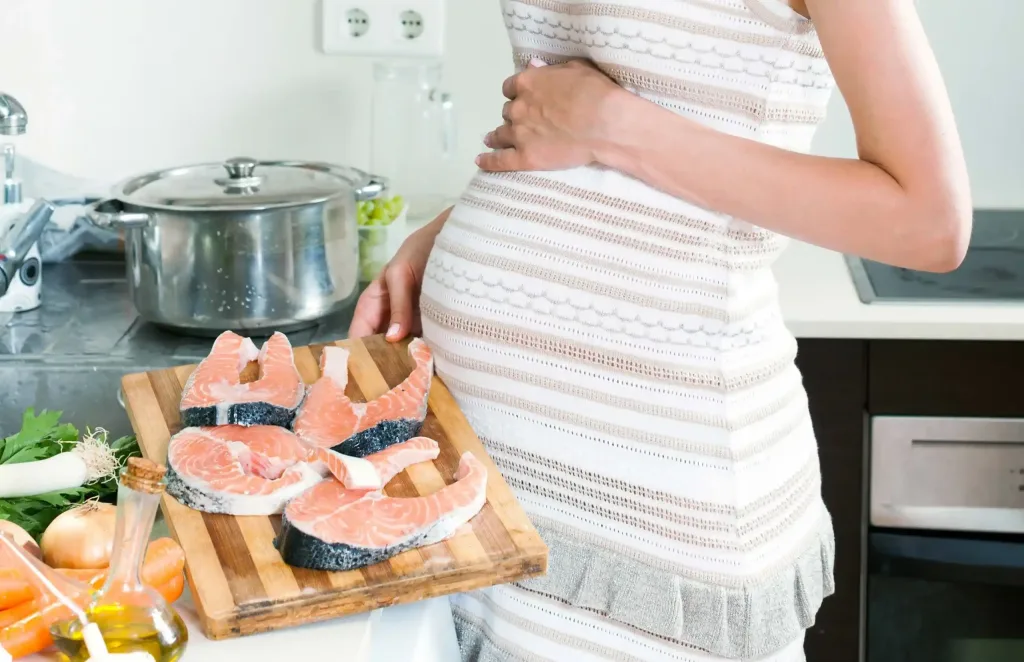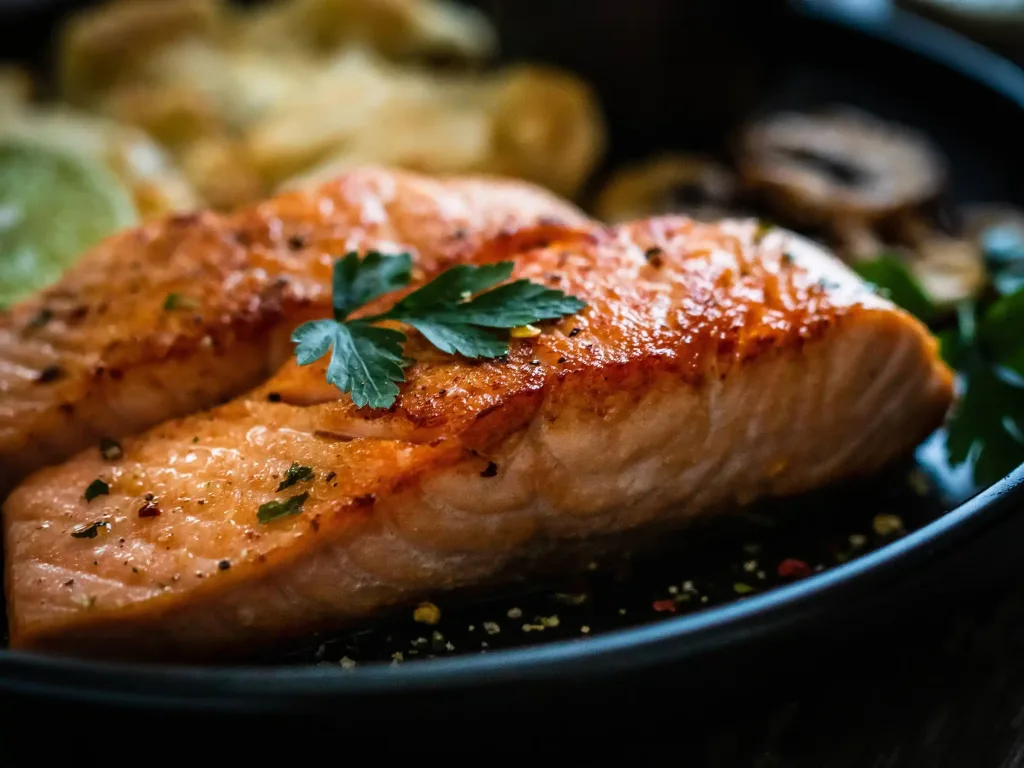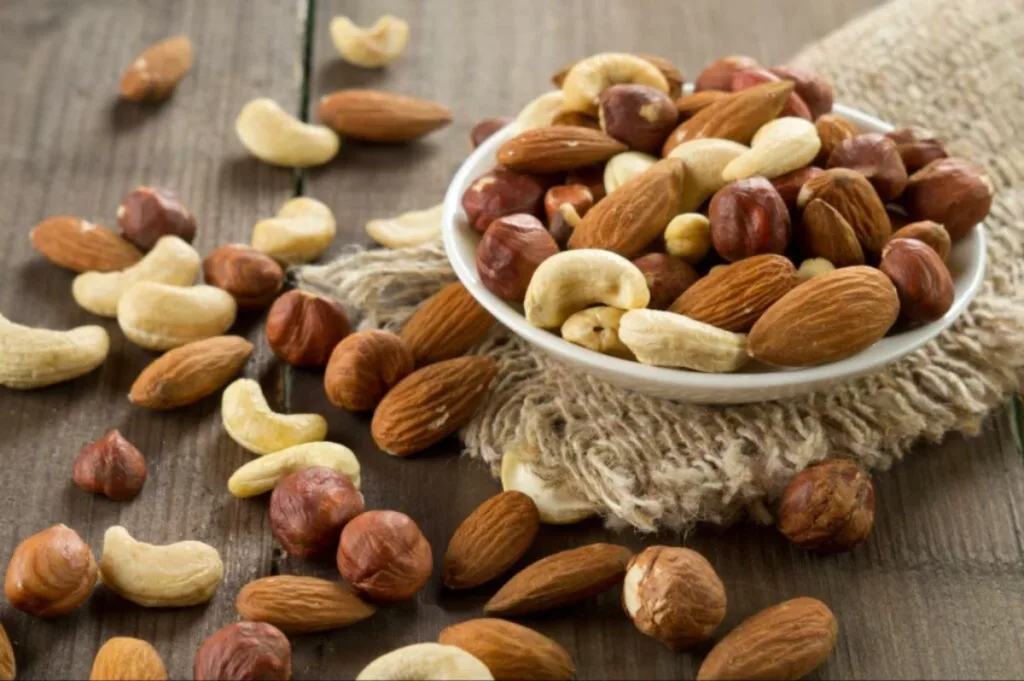It is not uncommon for many women to experience cravings for fish, a phenomenon often associated with unique hormonal shifts and increased nutritional requirements. This article will delve into the potential benefits of incorporating fish into one’s diet during this important period, emphasizing the essential nutrients it offers, particularly omega-3 fatty acids. Safety is a top priority; therefore, we will address the risks associated with mercury and guide on selecting and preparing fish responsibly. For those intrigued by fish cravings in pregnancy and interested in fulfilling nutritional needs safely, there are valuable insights and alternatives to explore in the following sections.
Why Pregnant Women Crave Fish

Pregnant women frequently encounter unique cravings, with cravings for fish being quite common. This can be attributed to hormonal changes and the body’s heightened nutritional requirements during this crucial time.
Fish is not only a delightful choice; it is also packed with essential nutrients, such as omega-3 fatty acids, which play a significant role in fetal development and brain health.
Many expectant mothers find themselves attracted to the taste and texture of fish, making it an important component of their pregnancy diet. Recognizing these cravings can assist in meal planning and ensuring a balanced intake of vital nutrients that support both maternal and fetal health.
Hormonal Changes and Nutritional Needs
Hormonal changes during pregnancy have a significant impact on women’s nutritional needs, often leading to various cravings, including an increased desire for fish, which is abundant in essential nutrients.
These hormonal shifts primarily involve elevated levels of progesterone and estrogen, which can influence metabolism and digestive processes. Consequently, expectant mothers may experience cravings for specific foods that are beneficial for fetal development and maternal health.
Fish, particularly known for its omega-3 fatty acids, is vital for supporting brain development in the growing baby. By incorporating fish into their diets, mothers can effectively manage cravings while receiving a satisfying nutritional boost that promotes overall wellness during this transformative period.
Understanding these hormonal dynamics enables women to make informed dietary choices, ensuring that both their nutritional needs and those of their baby are adequately met.
Potential Benefits of Fish Cravings in Pregnancy

Eating fish during pregnancy provides a variety of benefits, largely thanks to its high levels of omega-3 fatty acids such as DHA and EPA. These nutrients are crucial for fetal development and brain health.
Incorporating fish into one’s diet can support maternal well-being and contribute to a balanced pregnancy nutrition plan, offering essential proteins, vitamins, and minerals. The nutritional advantages of fish positively impact both fetal and maternal health, making it an important food group to include.
Recognizing these benefits can give the power to pregnant women to make informed decisions about their dietary choices.
Omega-3 Fatty Acids and Other Nutrients
Omega-3 fatty acids, particularly DHA and EPA, are essential during pregnancy as they significantly contribute to fetal brain development and overall health. Fish stands out as an excellent source of protein, enriched with vital vitamins and minerals.
These beneficial fats, primarily found in fatty fish such as salmon and sardines, are crucial not only for neurological development but also for enhancing vision in the developing fetus. Plus omega-3s, fish offers high-quality protein, which is vital for the formation of tissues and organs.
It is advisable for pregnant individuals to include other protein sources in their diet, such as lean meats, eggs, and legumes, to ensure a well-rounded intake of nutrients.
Moreover, important nutrients like iron, calcium, and vitamins A and D, present in various protein sources, play a significant role in maintaining maternal health and fostering a healthy pregnancy.
Safety Considerations for Eating Fish During Pregnancy

Fish provides numerous health benefits during pregnancy, but it’s crucial to understand the safety considerations to avoid potential health risks related to mercury levels and other contaminants often found in seafood.
Pregnant women should familiarize themselves with seafood safety guidelines to ensure they consume fish safely, thereby safeguarding both their health and that of their developing baby.
By adhering to appropriate safety tips, expectant mothers can enjoy the nutritional advantages of fish while minimizing the risks associated with environmental toxins, ultimately contributing to a balanced and healthy pregnancy diet.
Mercury and Other Contaminants
Mercury levels present a significant concern for pregnant women, as high exposure can pose serious health risks to both the mother and the developing fetus. It is essential to understand the contaminants found in certain types of fish.
This concern is particularly pressing because mercury, a neurotoxin, can interfere with fetal brain development, potentially leading to long-term cognitive impairments and behavioral issues. Additionally, other environmental toxins, such as polychlorinated biphenyls (PCBs) and dioxins, often found in fish, can further exacerbate developmental concerns.
To mitigate these risks, pregnant women are encouraged to follow dietary guidelines that recommend consuming fish known to have lower mercury levels, such as:
- Salmon
- Tilapia
- Sardines
Conversely, it is advisable to avoid high-mercury varieties like:
- Shark
- Swordfish
- King mackerel
Practicing safe cooking techniques and balancing seafood intake with other protein sources can also contribute positively to maternal and fetal health.
Further reading: Pregnancy Popcorn Cravings: A Guide for Expecting Moms
How to Choose and Prepare Fish Safely
Choosing and preparing fish safely is crucial for pregnant women who want to enjoy its benefits while minimizing health risks. It’s important to select safe types of fish and use appropriate cooking methods.
By focusing on sustainable seafood options, expectant mothers can make informed choices that are beneficial not only for their health but also for the environment.
Understanding these considerations can lead to healthier meal planning and a more enjoyable experience when consuming fish during pregnancy.
Tips for Selecting and Cooking Fish
When selecting and preparing fish, it is essential to choose varieties that are low in mercury and rich in healthy fats, making them a nutritious addition to a pregnancy diet.
Expectant mothers can gain significant benefits by choosing fish such as salmon, sardines, and trout. These options provide essential omega-3 fatty acids, which are crucial for fetal brain development, while also having lower mercury levels.
To maximize the nutritional benefits, cooking methods like steaming, grilling, or baking are recommended as they help preserve the nutrients without adding unnecessary fats.
Incorporating these delicious fish options into meal planning can enhance variety and keep meals interesting. This approach ensures that moms-to-be receive sufficient protein and healthy fats, all while minimizing potential risks associated with consuming higher-mercury fish like shark or swordfish.
Other Nutritional Sources for Pregnant Women
Pregnant women seeking alternatives to fish have a variety of nutritional sources available that can supply the essential proteins, vitamins, and minerals needed for both maternal and fetal health.
This is particularly important for those who have dietary restrictions or allergies.
Alternatives to Fish for Meeting Nutritional Needs

If fish is not an option, there are several seafood alternatives that provide comparable nutritional value, allowing pregnant women to meet their dietary preferences and nutritional needs.
These alternatives include options such as:
- Plant-based proteins
- Legumes
- Specific varieties of nuts
For example, beans and lentils serve as excellent sources of protein and are rich in essential nutrients like folate and iron, both of which are crucial during pregnancy. Incorporating chia seeds into the diet can also provide omega-3 fatty acids similar to those found in fish, which support brain development in the fetus.
By diversifying dietary choices, individuals can enjoy a wide array of flavors and textures while maintaining a wholesome, balanced approach to nutrition.
Further reading: Why Are You Craving Mustard During Pregnancy?
Frequently Asked Questions
What are the benefits of satisfying fish cravings during pregnancy?
Fish is a great source of omega-3 fatty acids, which are crucial for the development of your baby's brain and eyes. It also contains high levels of protein and essential nutrients like iron, zinc, and vitamin D, which are important for a healthy pregnancy.
Are there any specific types of fish that are recommended for pregnant women?
Fish low in mercury such as salmon, tilapia, cod, and shrimp are safe options for pregnant women. It is advised to limit consumption of high-mercury fish like swordfish, shark, and tilefish to no more than once a month.
Can eating fish during pregnancy be harmful to the baby?
As long as you choose the right types of fish and consume them in moderation, eating fish during pregnancy is not harmful. In fact, it can provide numerous benefits for both you and your baby.
Are there any safety tips to keep in mind when eating fish during pregnancy?
It is important to ensure that the fish you consume is cooked thoroughly to avoid any risk of foodborne illness. Pregnant women should also avoid raw or undercooked fish and opt for low-mercury options.
Can fulfilling fish cravings during pregnancy help with morning sickness?
Many women experience nausea and vomiting during pregnancy, commonly known as morning sickness. Fish, specifically ginger-filled sushi rolls, can help alleviate these symptoms and provide much-needed relief.




